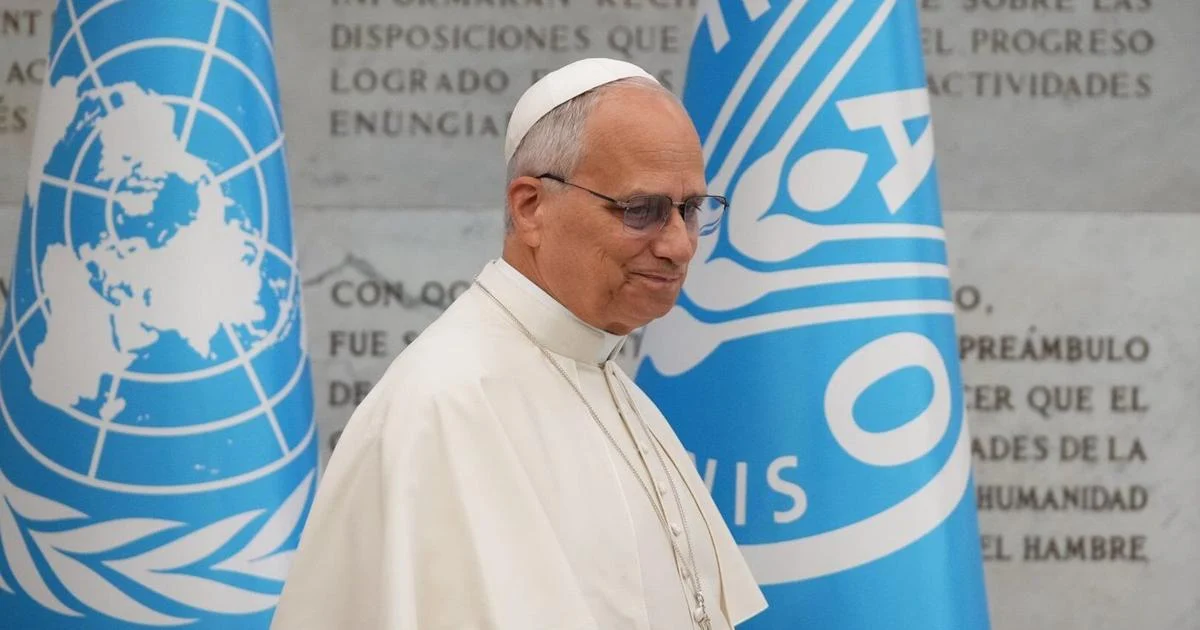
Pope Léon XIV delivered a powerful address in Rome on Thursday, condemning what he described as “the moral failure of humanity” to end hunger, during a ceremony marking the 80th anniversary of the United Nations Food and Agriculture Organization (FAO).
Speaking before a distinguished audience that included heads of state, international leaders, the Queen of Spain, and former UN Secretary-General Ban Ki-Moon, the Pope urged the world to confront what he called “apathy and indifference” in the face of human suffering.
“If hunger is defeated, peace will be the fertile ground from which the common good of nations will emerge,” he declared, calling for collective action in which every government, institution, and individual accepts their share of responsibility.
Referring to the 673 million people who still suffer from hunger and the 2.3 billion who lack adequate food, Pope Léon XIV described these figures as “intolerable in an age when science and technology perform daily miracles.”
He said the situation reflected “a soulless economy and an unjust system of resource distribution,” denouncing world hunger as “a collective failure, an ethical aberration, and a historical fault.”
The pontiff also condemned the resurgence of famine as a weapon of war, citing ongoing humanitarian violations in Ukraine, Gaza, Mali, Haiti, and South Sudan.
“We witness, with pain, the continued use of this cruel strategy that deprives entire peoples of their right to life,” he lamented, reminding that the deliberate denial of food constitutes a war crime recognized by the UN Security Council.
In his appeal, Léon XIV called for a renewal of multilateralism, describing it as “the only viable path in a fragmented world.”
He urged that international cooperation be redefined to better include poorer nations “without imposing solutions conceived far from their realities.”
Concluding his homily, the Pope emphasised the spiritual dimension of the fight against hunger.
“He who suffers from hunger is not a stranger; he is my brother,” he said, urging people to respond not only to “the hunger for bread” but also to “the hunger for faith, hope, and love.”
Citing the Gospel, he ended with a solemn appeal to shared responsibility: “Do not tire of asking God for the courage to continue working for a justice that yields lasting and beneficial results.”



